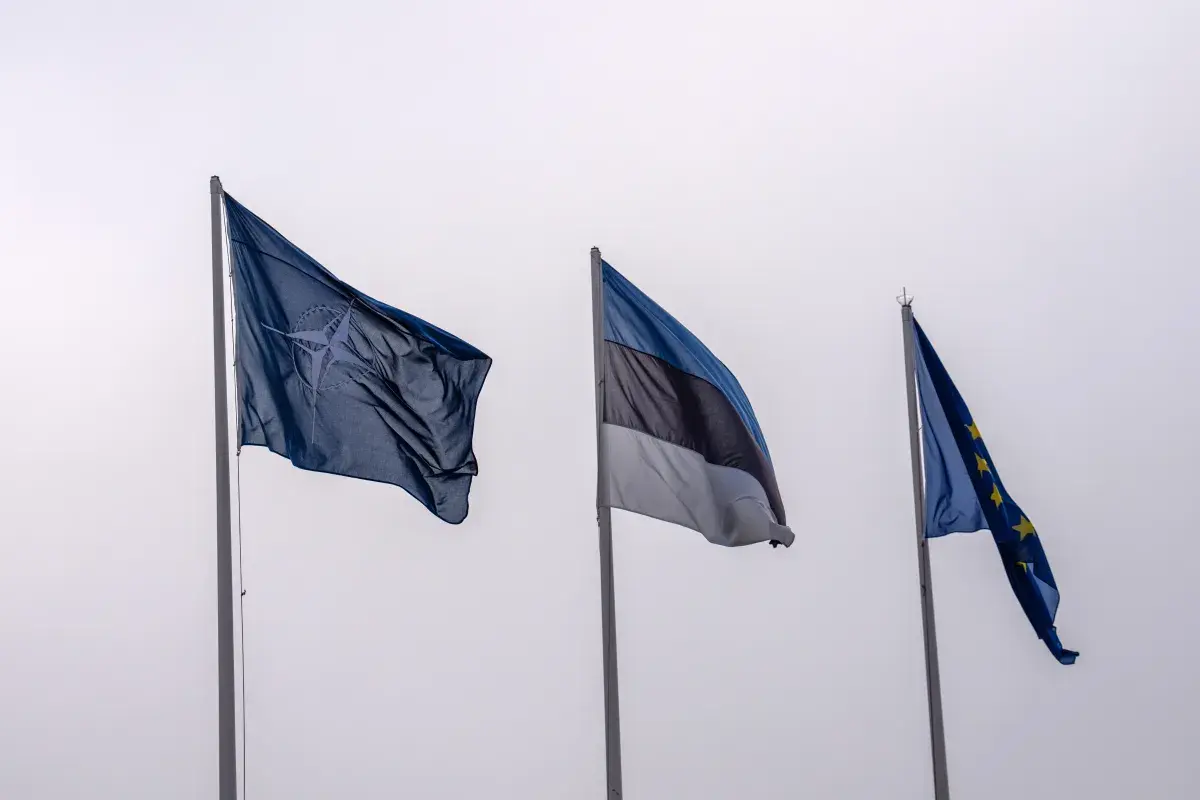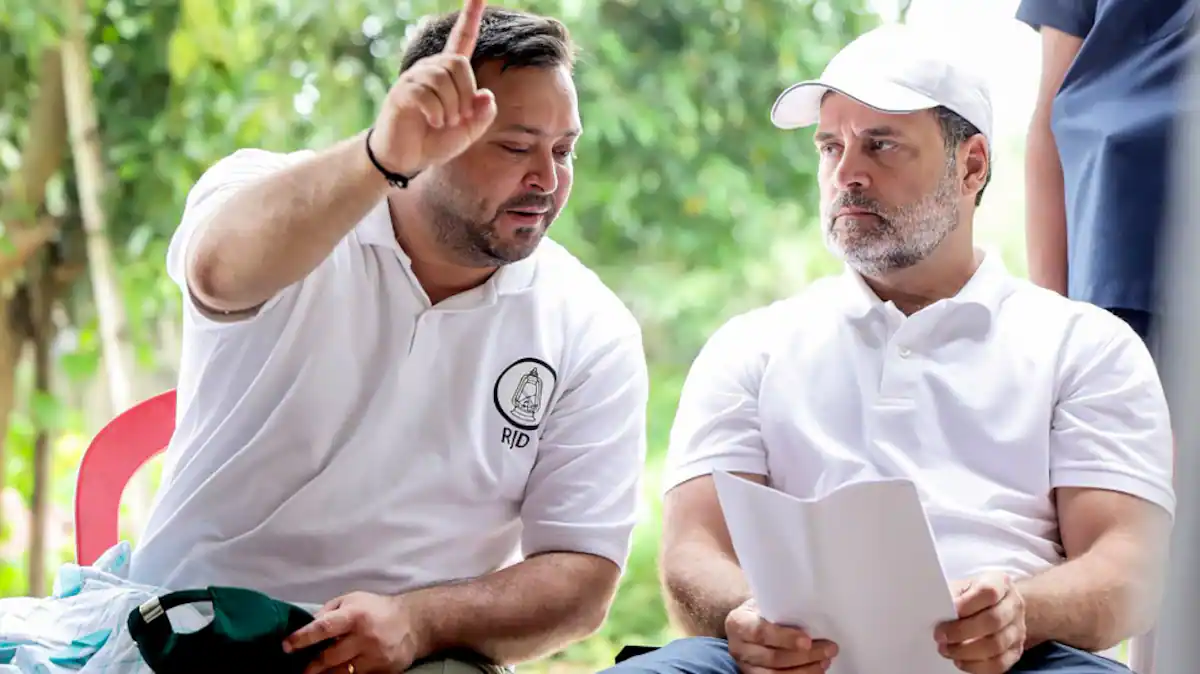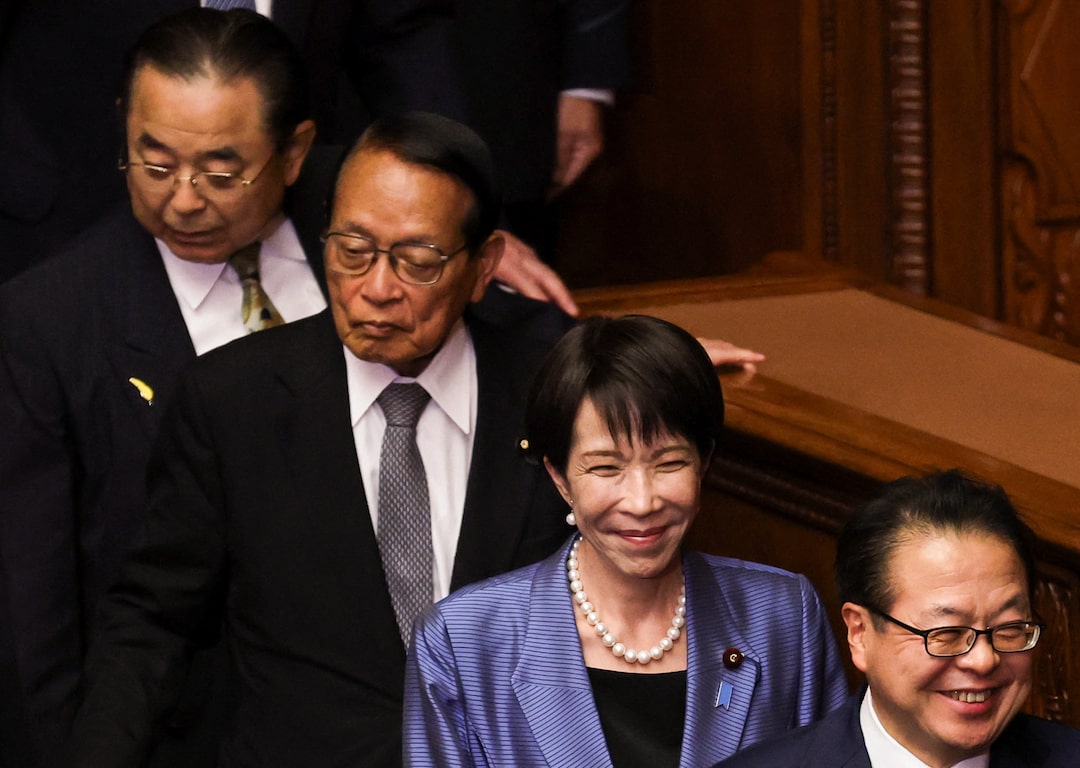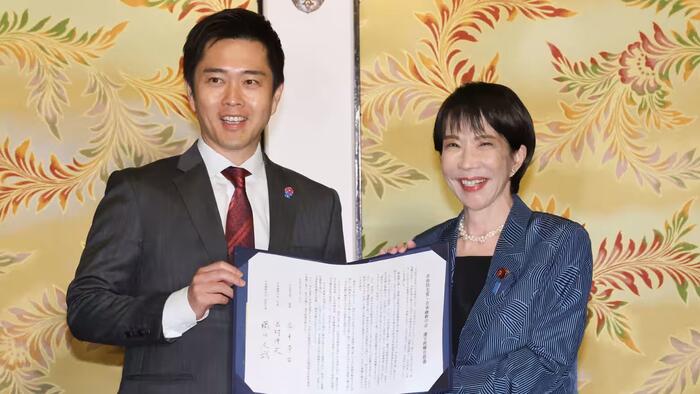Copyright Newsweek

Russia will bank on a split in NATO over whether to invoke the alliance's collective defensive pledge, spurring it to stage a limited incursion into the alliance’s eastern flank within three years, according to a prediction by Carlo Masala, a German military expert and politics professor. His book If Russia Wins: A Scenario, speculates that the Kremlin could make a move into Estonia as soon as 2028 because there are circles in Moscow who do not believe that every NATO member would back Article 5, which stipulates that an attack on one alliance member is an attack on all. Masala told Newsweek that this is because Moscow believes that some countries "are not willing to fight Russia." Russia Accused of Provocations Estonia has accused Russia of provocations, the latest of which saw an unusual movement by Russian troops near its border earlier this month, which prompted Tallinn to shut its frontier checkpoint near the Saatse Boot border crossing. Estonian Foreign Minister Margus Tsahkna said officials spotted "seven armed Russian servicemen" on the Russian side of a road in southeast Estonia that flits into Russian territory. Estonian authorities temporarily stopped traffic on the road to swerve any "potential incidents," the minister said. More overt actions by Moscow, such as Mikoyan MiG-31 aircraft entering Estonian airspace in September—which the Kremlin has denied—show how Russia is becoming “more reckless in testing the deterrence of NATO.” “If you believe in its deterrence, then you don't fly with three fighter pilots into Estonian airspace,” Masala said. “You might do it with one, but not with three for 12 minutes.” Estonia invoked Article 4 of NATO’s charter calling for more consultations but Masala said other members stressed the possibility that the incident might have been a mistake. Divided alliance responses could become more marked in future and be exploited by Moscow, emboldened by a post-Ukraine war deal settled in the Kremlin’s favor, according to Masala’s book, which outlines the circumstances of a Russian move on Estonia. Moscow Testing Article 5 A large-scale attack against one or more of the Baltic states or Poland raises the chance that NATO will invoke Article 5 to extremely high, a risk Russia would not be likely to take, Masala said. However, a smaller provocation makes it more likely for NATO to fall into at least two or even three camps—those who would like to fight back immediately, those who would like to negotiate with the Russians, and those who hope that everything is over very soon. This could be facilitated by a lurch to the right in the next three years among political leaders in Europe less aligned with NATO. "The Russians are exploiting that,” Masala said. His book outlines what Moscow might do should the Ukraine war be settled on terms favorable to Moscow, such as Kyiv surrendering 20 percent of its territory and being prevented from pursuing NATO membership with few security guarantees. The smaller provocation his book describes involves a limited Russian incursion into the Estonian city of Narva under the pretext of protecting the predominantly Russian-speaking population, who through misinformation and propaganda the Kremlin will portray as under threat. This is from the playbook of its actions in Ukraine's Donbas region in 2014. Then Russian soldiers would appear on the Estonian island of Hiiumaa backed by Russia’s Baltic Fleet warships, which could blockade the Baltic states, according to the book. Aiding its actions would be diversions in the South China Sea involving a spat between Beijing and the Philippines, and a migrant crisis in Southern Europe, according to Masala’s scenario, which would test the resilience of both the international community and NATO. His book posits the idea that Russian President Vladimir Putin will step down but the imperial ambitions of the Kremlin will remain and be focused on dominating Eastern Europe. As long as NATO reacts to these kinds of provocations and the U.S. maintains its presence in Europe, it is highly unlikely that Russia can dominate countries in Eastern Europe politically and economically, said Masala. “But once NATO falls apart, it's much easier,” he said, a collapse that would follow if Article 5 was not acted upon. Q&A With Carlo Masala What do you think about Estonia raising the alarm over unmarked Russian troops appearing near its border on October 10? “I think this was a PR stunt by the Russians because if you really want to pose a threat to Estonia, you don't let seven soldiers walk on the street in no formation as living targets. "It's not really a preparation for something which might be upcoming. This was a demonstration by the Russians as if to say, ‘we can do these things without having to fear any consequences.'” But could Russia just be putting the feelers out over what it can do incrementally to test NATO? “The Russians are becoming more and more reckless in the way they test the deterrence of NATO and the ability to react by particular nations. This has to do with driving a wedge between the Europeans and NATO. ”We have had these provocations for two years but what you see in the past few months is that the Russians are stepping up their game, with 19 drones into Poland and three fighter jets into Estonia. They are taking an even higher risk in their provocations.” Has Russia already made up its mind that Article 5 has no teeth? “After I wrote the book, our former chief of the External Intelligence Service (Bruno Kahl) said that the German External Intelligence Service has proof that there are circles in Moscow who do not believe any longer in Article 5, and they would like to test it.” “I would go along with this interpretation. They (Moscow) see a Trump administration which is wobbling between getting tough on Russia or not, but definitely not willing to fight a war for Europe. “There is a divide among European countries. What I heard about the NATO meeting when Estonia invoked Article 4, was that there was a small group of NATO countries, the U.S. and also Germany, who were very keen on keeping open the possibility the three fighter planes went into Estonian airspace by mistake. The others, let's say the Eastern Europeans and the Baltics, were very tough on the issue that this was deliberately done. “So we have this divide. Firstly, the Russians are contributing to that, and secondly, they're seeing some countries are not willing to fight Russia if push comes to shove.” So if Article 5 is not invoked in the case of a Russian invasion, that’s the end of NATO? “NATO was founded for that. All the things which came after 1949 (the year it was founded), such as being an alliance of values and so on, are nice things to have, but the core element is collective defense. “The countries are paying in terms of sovereignty, a price for being a member of NATO, because they have a very limited national defense policy. Most things are done at NATO's headquarters and countries then have to follow the guidelines. “So why should you do this if at the end of the day, NATO is not able to protect your sovereignty, your territorial integrity? "If you go through NATO's history, whether the U.S .would come to the defense of Europe was always the question in NATO. During the 60s, the 70s and the 80s, there was always a concern that at the end of the day, the U.S. might decide not to risk the destruction of New York for the liberation, at that time of Hamburg, nowadays, of a city in Estonia or Latvia.” Your book says a Russian invasion could coincide with a migration crisis in Southern Europe and skirmishes between Beijing and the Philippines in the South China Sea. Does Russia require cooperation from Beijing for it to make a move on NATO? “I wrote the book primarily for a German audience, who at that time was debating whether it's realistic that the Russians are going to attack another NATO member or not. “One thing which I see in the German, but also in the European military, is when we think about whether Russia would attack a NATO country or not, we're very much focused on the eastern flank. “We overlook the fact that if you look at how the Russians do things strategically, like the Chinese, they look at the globe as one theater. We divide these things into regional theaters. “I wanted just to raise the awareness that, an attack on Estonia might start with something in the sub-Sahara. They (Russia) might ask the Chinese to do something so that the EU and the U.S. will be distracted. “This might be obvious for an American reader, because he is used to another strategic debate and discussion but for a European reader, we are very much used to looking at regions.”



